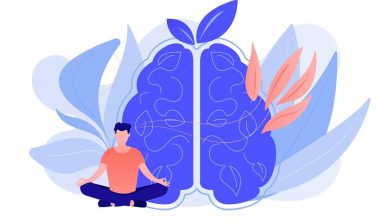10 Best Tips to Achieving Mindfulness for Teens in (2022)

Mindfulness has become a popular topic in recent years, as people have realized the importance of living in the present moment. Unfortunately, many adults struggle with mindfulness, so it can be difficult for teens to practice it. However, mindfulness can be a valuable tool for improving mental health and well-being with some guidance and practice. Today, In This blog post will discuss ten tips for achieving mindfulness in teens!
Tip #01: Be patient
It can be tempting to become a mindfulness expert overnight, but this is not realistic or healthy. Mindfulness requires patience and practice, so be gentle with yourself and allow yourself to learn and grow.
Tip #02: Find a comfortable place to sit or recline
To be fully present, it is crucial to find a comfortable place to sit or recline. This will help your body relax and allow your mind to focus on the present moment.
Tip #03: Close your eyes and take slow, deep breaths.
One of the essential aspects of mindfulness is to focus on your breath. Close your eyes and take slow, deep breaths, counting each inhales and exhale. This will help you to relax and focus on the present moment.
Tip #04: Become aware of your thoughts and feelings
A big part of mindfulness is becoming aware of your thoughts and feelings. Pay attention to what is going on in your mind and how you are feeling in the present moment. This can be not easy at first, but it will become easier with practice.
Also read this article: Manifestation Meditation: How To Do This? Benefits, FAQs
Tip #05: Notice your surroundings
When practising mindfulness, it is vital to be aware of your surroundings. Notice the sights, sounds, smells, and textures around you. This will help you appreciate the present moment and ground yourself in your surroundings.
Tip #06: Accept your thoughts and feelings
One of the essential aspects of mindfulness is acceptance. Accepting your thoughts and feelings means that you are not trying to fight them or change them but simply acknowledging them. This can be not easy at first, but it will become easier with practice.
Tip #07: Be nonjudgmental towards yourself
Another vital part of mindfulness is to be nonjudgmental towards yourself. This means that you do not criticize or judge yourself for your thoughts and feelings but accept them. Again, this can be not easy at first, but it will become easier with practice.
Tip #08: Pay attention to your body
When practising mindfulness, it is essential to pay attention to your body. Notice how you feel in the present moment and what sensations you are experiencing. This can help you get in touch with your body and appreciate the present moment.
Tip #09: Be mindful of your eating habits
When practising mindfulness, it is essential to be mindful of your eating habits. Pay attention to how you feel when eating and what foods you consume. This can help you develop healthy eating habits and appreciate your food.
Tip #010: Practice regularly
The final tip for achieving mindfulness is to practice regularly. The more you practice, the easier it will become. Find a time that works for you and make mindfulness a part of your daily routine!
Conclusion:
Mindfulness has become a popular topic in recent years, as people have become interested in its potential benefits. If you are looking to improve your mental health and well-being, consider giving mindfulness a try! With some patience and practice, anyone can learn to be more mindful.
What do you think about mindfulness? Have you ever tried it? Let us know in the comments below!
FAQS – Frequently Asked Questions
How can mindfulness help my teenager?
Mindfulness is an effective way to help reduce stress and anxiety in teenagers. It can also help them to focus and concentrate better, as well as improve their sleeping patterns.
What is the best way for my teenager to learn mindfulness?
There are many different ways that teenagers can learn mindfulness. Some people find that attending a class or workshop is the best way, while others prefer to learn online or through audio recordings.
Can mindfulness help with mental health problems?
Mindfulness is an effective treatment for many mental health conditions, such as anxiety and depression. It can also be helpful for problems such as ADHD and OCD.
Is mindfulness suitable for young children?
There is some evidence that mindfulness can be beneficial for very young children, but it is vital to find a program or teacher experienced in teaching mindfulness to young children.
What if my teenager doesn’t want to Practice mindfulness?
If your teenager is resistant to the idea of mindfulness, it is essential to respect their wishes and not force them to do something they are not comfortable with. However, there are many ways to encourage them to give it a try, such as offering rewards for completing a mindfulness activity.
Can mindfulness help with exam stress?
There is some evidence that mindfulness can help reduce anxiety and improve focus in teenagers experiencing exam stress, Practicing mindfulness regularly for a few weeks before exams may be helpful.
If you want to learn more information about mindfulness for teens, You should read this article: 10 Mindfulness Activities for Teens




